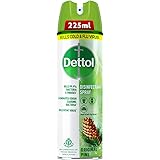Redmi A4 5G (Sparkle Purple, 4GB RAM, 128GB Storage) | Global Debut SD 4s Gen 2 | Segment Largest 6.88in 120Hz | 50MP Dual Camera | 18W Fast Charging
₹9,498.00 (as of December 21, 2024 20:33 GMT +05:30 - More infoProduct prices and availability are accurate as of the date/time indicated and are subject to change. Any price and availability information displayed on [relevant Amazon Site(s), as applicable] at the time of purchase will apply to the purchase of this product.)Preparing for a full-stack developer interview can be a daunting task due to the vast array of skills required. However, with the right approach and preparation, you can ace your interview and land your dream job. This article provides essential tips for aspiring full stack developers, focusing on crucial areas such as common full-stack developer interview questions and an effective full stack developer roadmap.
Introduction
Full-stack developers are in high demand due to their ability to work on both frontend and backend technologies. Preparing for a full stack developer interview involves mastering a broad skill set and being ready to tackle a variety of questions and challenges. This guide will help you navigate through the preparation process effectively.
Understanding the Full Stack Developer Role
Before diving into preparation, it’s essential to understand the core responsibilities of a full stack developer:
- Developing both client-side (frontend) and server-side (backend) software.
- Working with databases, servers, and APIs.
- Ensuring the responsiveness and performance of web applications.
- Collaborating with designers, product managers, and other developers.
Preparing for the Interview
Preparation is key to success. Start by researching the company, understanding its products and services, and familiarizing yourself with the job description. Identify the skills and qualifications required and align your preparation accordingly.
Common Full Stack Developer Interview Questions
Here are some typical full-stack developer interview questions you might encounter:
- Can you explain the MVC architecture and how you’ve used it in your projects?
- How do you manage state in a React application?
- What are the key differences between SQL and NoSQL databases?
- How do you ensure the security of a web application?
- Can you describe a RESTful API and how you’ve implemented it?
Technical Skills Assessment
Interviewers will likely assess your technical skills through various methods:
- Whiteboard Coding: Be prepared to solve coding problems on a whiteboard or during a live coding session.
- Take-Home Assignments: Some companies may give you a project to complete at home to assess your coding style and problem-solving approach.
- Technical Quizzes: Expect questions on fundamental technologies like HTML, CSS, JavaScript, backend languages (e.g., Node.js, Python), and databases.
Practical Coding Challenges
In addition to theoretical questions, you may face practical coding challenges. Here’s how to excel:
- Practice Regularly: Use platforms like LeetCode, HackerRank, and CodeSignal to practice coding problems.
- Understand Algorithms: Brush up on common algorithms and data structures, as they often form the basis of coding challenges.
- Explain Your Thought Process: During the interview, clearly articulate your approach and reasoning as you solve problems.
Soft Skills and Communication
Technical skills are important, but soft skills and communication abilities can set you apart from other candidates. Interviewers look for candidates who can:
- Collaborate Effectively: Demonstrate your ability to work well with others.
- Communicate Clearly: Explain complex technical concepts in simple terms.
- Adapt and Learn: Show your willingness to learn and adapt to new technologies and methodologies.
Building an Impressive Portfolio
A strong portfolio can significantly boost your chances of landing a job. Include:
- Personal Projects: Showcase projects that demonstrate your skills and creativity.
- Contributions to Open Source: Highlight any contributions you’ve made to open-source projects.
- Professional Experience: Include any relevant work experience, internships, or freelance projects.
Utilizing the Full Stack Developer Roadmap
The Full Stack Developer Roadmap is a comprehensive guide that outlines the skills and technologies you should learn to become a proficient full-stack developer. Here’s how to use it effectively:
- Identify Key Areas: Focus on essential areas such as frontend (HTML, CSS, JavaScript), backend (Node.js, Python), databases (SQL, NoSQL), and version control (Git).
- Set Goals: Break down your learning into manageable goals and set a timeline for achieving them.
- Continuous Learning: Stay updated with the latest trends and advancements in full-stack development.
Conclusion
Acing your next full stack developer interview requires a blend of technical knowledge, practical skills, and effective communication. By understanding the role, preparing thoroughly, practicing common full-stack developer interview questions, and following a well-structured full stack developer roadmap, you can confidently showcase your abilities and stand out to potential employers. Good luck!







0 Comments